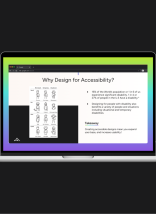When your customers seek out solutions for the problems they face, the Internet is the first place they look.
“They come for information that answers their question or helps them complete their task. They want that information to be easy to find, easy to understand, up-to-date, and credible.” -Ginny Redish
You need to make sure your solution is easy to find, easy to understand, up-to-date, and credible. The best way to do this is by writing original web content that grabs your audience’s attention.
To create content that stands out, it’s helpful to understand how your customers use online information. Thankfully, the explosion of data made available by the Internet has allowed us to analyze how web users consume online content and what drives their behavior.
How Consumers Use Online Information
Google has studied consumer shopping behavior extensively. Many shoppers now search for online product descriptions as well as professional and individual consumer reviews before making a purchase decision. Google calls this consumer decision-making process the “Zero Moment of Truth (ZMOT).”
According to a shopping behavior study by Google and Shopper Sciences, the Zero Moment of Truth has become more important in recent years:
- 88% of U.S. consumers now engage in ZMOT research before making a final purchase decision.
- Consumers consult an average of 10.4 sources before buying and this rate continues to rise.
As consumers research their purchases online, the question then becomes: “Who is controlling what they see about your product or service?” If you don’t take action to provide the information they’re looking for, someone else will—essentially controlling the conversation with your potential customer.
The First Step to Leading the Online Conversation
How do you attract visitors and ensure they see your content instead of someone else’s?
In User Experience (UX) workshops with our clients, it becomes clear that website visitors often prefer search to find what they want, rather than browsing or navigating a website. This makes sense. Given the sheer volume of websites, menu items, and possible ways to browse, navigating content can be overwhelming.
Therefore, if you want to lead the online conversation about your products and services, the first step is to make sure search engines rate your page highly. The art and science of doing this is called Search Engine Optimization (SEO).
How SEO Relates to Your Content
According to recent research, Organic Search is responsible for 64% of your web traffic. The term Organic Search refers to Search Engine Result Pages (SERPs) that appear based on their relevance to search terms the user entered. This is not the same as paid advertisements. As search engine algorithms become more sophisticated, they’re getting better at understanding what users are looking for. As a result, they can provide the most relevant possible results.
“Google is now putting a high emphasis on sites that are considered to have a high level of expertise, authoritativeness or trustworthiness.” This makes it essential that all your online content conveys expert, research-backed opinions in order to win consumers’ trust.
It’s also vital that you produce original, authoritative content that demonstrates thought leadership in your field. Don’t simply forward or re-post content other people have written. Instead, flip the 1% rule in your favor and become a content generator that others link to and follow.
By understanding what your audience is searching for and how search engines find it, you have insight to create original and trustworthy content that will catch the eye of your customers. If you’re looking for more guidance as you build a content strategy that works for you, we’re happy to help.








